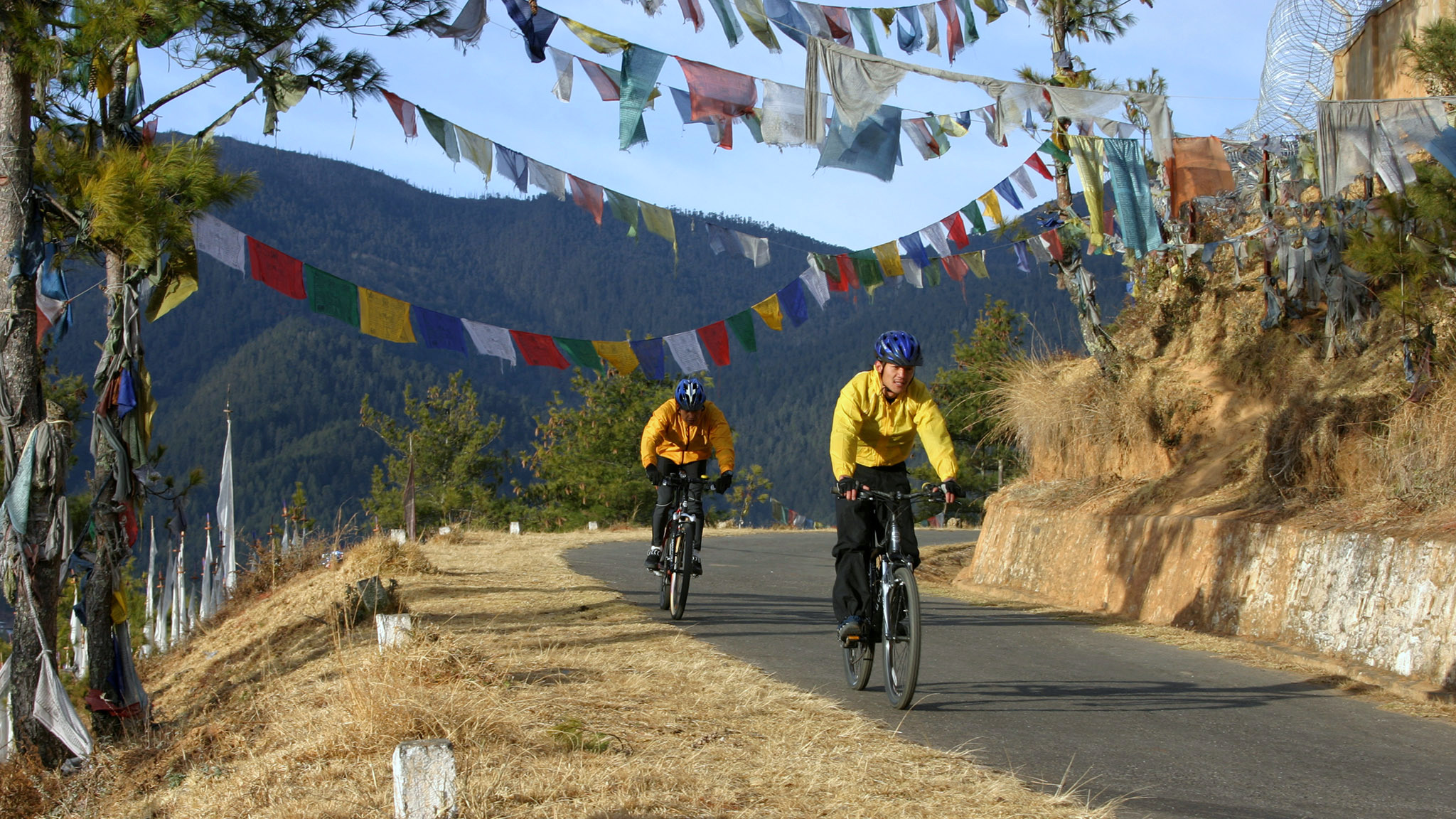Embarking on a solo journey through Bhutan is an unparalleled adventure that promises not just exploration of a stunning Himalayan kingdom but also a profound encounter with happiness woven into the fabric of its culture. In this guide, we partner with Amen Bhutan Tours and Treks to unveil the secrets of solo travel in Bhutan, a land where spirituality, tradition, and breathtaking landscapes converge. From navigating the unique permit system to delving into the warmth of Bhutanese hospitality, this guide is your key to unlocking the Kingdom of Happiness on your own terms. Get ready for a transformative experience as we navigate the intricacies of solo travel in one of the world's most enchanting destinations.
Understanding Bhutan
Embarking on a solo trip to Bhutan is an opportunity to explore a unique blend of rich cultural heritage, breathtaking landscapes, and a commitment to holistic well-being. To make the most of your solo Bhutan trip, it's essential to understand the cultural, philosophical, and environmental aspects that define this enchanting kingdom. Here's an overview to help you grasp the essence of Bhutan as you plan your journey:
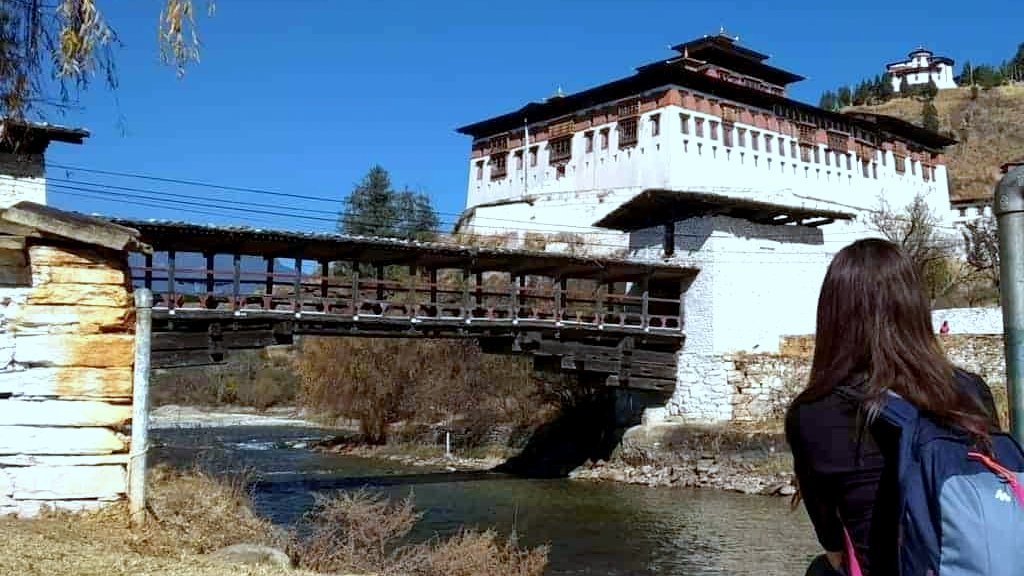
- Philosophy of Gross National Happiness (GNH): Bhutan's guiding principle is Gross National Happiness, a holistic approach to development that prioritizes the well-being of its citizens over material wealth. This philosophy encompasses nine domains, including psychological well-being, health, education, and cultural diversity.
- Bhutanese Buddhism: Buddhism is deeply ingrained in Bhutanese culture, shaping daily life, festivals, and traditions. Dzongs (fortresses), monasteries, and stupas dot the landscape, showcasing the importance of spiritual practices in the lives of the Bhutanese people.
- High-Value, Low-Impact Tourism: Bhutan follows a unique tourism policy to preserve its environment and culture. Solo travelers must book their trips through licensed Bhutanese tour operators, and a daily tariff is applied, covering accommodation, meals, transportation, and a licensed guide.
- Architectural Harmony: Bhutan's architecture reflects a harmonious blend of tradition and innovation. Dzongs and monasteries boast intricate woodwork, vibrant colors, and traditional designs, contributing to the country's unique visual identity.
- Traditional Dress: The Bhutanese take pride in their traditional attire. Men wear the "gho," and women wear the "kira." The traditional dress is not just a cultural symbol but also a mandatory dress code in many formal settings, emphasizing the importance of tradition in Bhutanese society.
- Environmental Conservation: Bhutan is committed to environmental conservation, with over 70% of its land covered by forests. The country has pledged to remain carbon-neutral and has implemented initiatives like the Bhutan for Life project to protect biodiversity and natural resources.
- Isolation and Late Modernization: Bhutan remained isolated from the outside world until the mid-20th century, contributing to the preservation of its culture. The country has cautiously embraced modernization, striking a balance between progress and the preservation of cultural heritage.
- Cultural Festivals: Bhutan hosts vibrant festivals, known as "tsechus," throughout the year. These festivals celebrate religious events with masked dances, colorful costumes, and community participation, offering travelers an immersive experience of Bhutanese culture.
Understanding Bhutan is about appreciating its commitment to happiness, the significance of Buddhism, the sustainable tourism model, architectural aesthetics, cultural traditions, and the delicate balance between tradition and modernity. As you embark on your solo Bhutan trip, this understanding will deepen your appreciation for the kingdom's unique identity and contribute to a more enriching travel experience.
Entry Requirements
Embarking on a solo trip to Bhutan is an exciting adventure, but before you set foot in the Kingdom of the Thunder Dragon, it's crucial to understand the entry requirements. Bhutan has unique regulations designed to preserve its culture, environment, and ensure a high-value, low-impact form of tourism. Here's an overview to guide you through the entry process for your solo Bhutan trip:
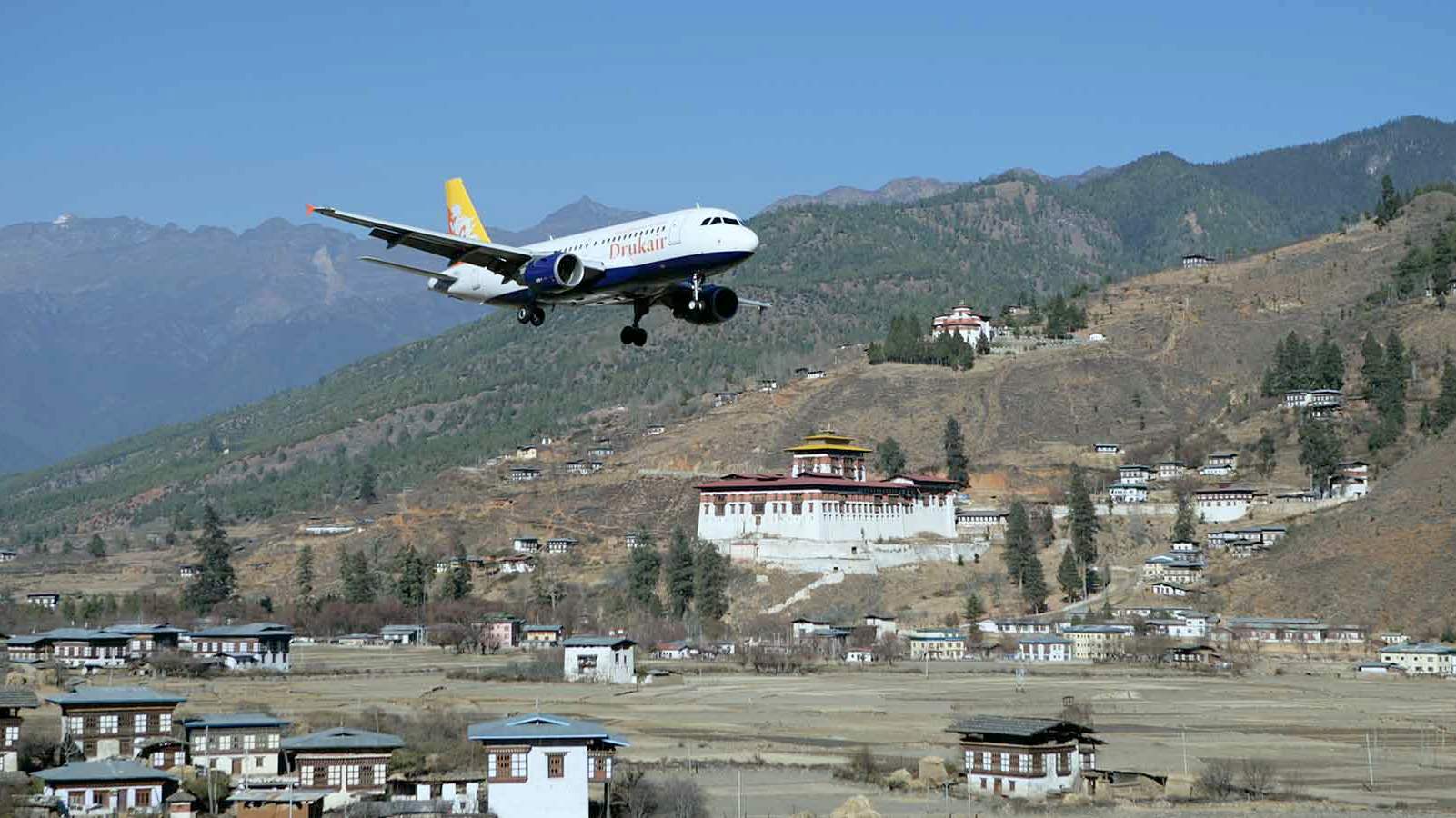
- Booking Through Licensed Tour Operators: Solo travelers must book their trip through licensed Bhutanese tour operators. Independent travel is not permitted, and you need to plan your journey with an authorized agency. The tour operator will handle your itinerary, accommodations, meals, transportation, and provide a licensed guide, ensuring a comprehensive and organized travel experience.
- Daily Tariff: Bhutan follows a daily tariff system, which covers most of your expenses during the trip. This tariff is set by the Tourism Council of Bhutan and helps maintain sustainable tourism practices. The daily tariff includes accommodation in approved hotels, all meals, transportation within Bhutan, a licensed Bhutanese guide, and entry fees to tourist sites.
- Minimum Daily Package: The minimum daily package is set by the government and varies depending on the season. It is payable in advance to your tour operator. This fee is designed to ensure a high-quality travel experience while minimizing the impact on Bhutan's environment and culture.
- Visa Processing: Bhutanese visas are not issued through foreign embassies or consulates. Your tour operator will process the visa on your behalf, and you will receive a visa clearance letter once your trip is confirmed. Upon arrival in Bhutan, you will present the visa clearance letter at the immigration checkpoint, where your visa will be stamped into your passport.
- Entry Points: The only international airport in Bhutan is located in Paro. Druk Air and Bhutan Airlines are the only carriers operating flights to Bhutan. You can also enter Bhutan overland through certain border points, but this is usually done in conjunction with a pre-arranged tour.
- Timing and Advance Planning: It's advisable to plan your Bhutan trip well in advance, especially if you intend to visit during peak seasons. The government has a limited number of visas available, and popular festivals or events may lead to higher demand.
- Special Permits for Restricted Areas: Certain areas in Bhutan, particularly those near the borders with China and India, require special permits. Your tour operator will obtain these permits if your itinerary includes such regions.
- COVID-19 Considerations: Keep abreast of any COVID-19 related entry requirements or restrictions that may be in place. Bhutan has been vigilant in managing the pandemic, and entry protocols may change based on global and regional situations.
- Respecting Bhutanese Laws and Customs: Adherence to Bhutanese laws and customs is imperative. Visitors are expected to respect local traditions, especially in religious sites where certain dress codes and behavioral norms apply.
By understanding and adhering to these entry requirements, you pave the way for a smooth and enriching solo journey through Bhutan. The Kingdom's commitment to sustainable tourism ensures that your experience will not only be memorable but also contribute to the preservation of Bhutan's unique cultural and environmental heritage.
When to Visit
Choosing the right time to embark on a solo trip to Bhutan is crucial for a fulfilling and enjoyable experience. The Kingdom of Bhutan experiences distinct seasons, each offering its own unique charm. Consider the following overview to help you decide when to plan your solo adventure in this enchanting Himalayan destination:
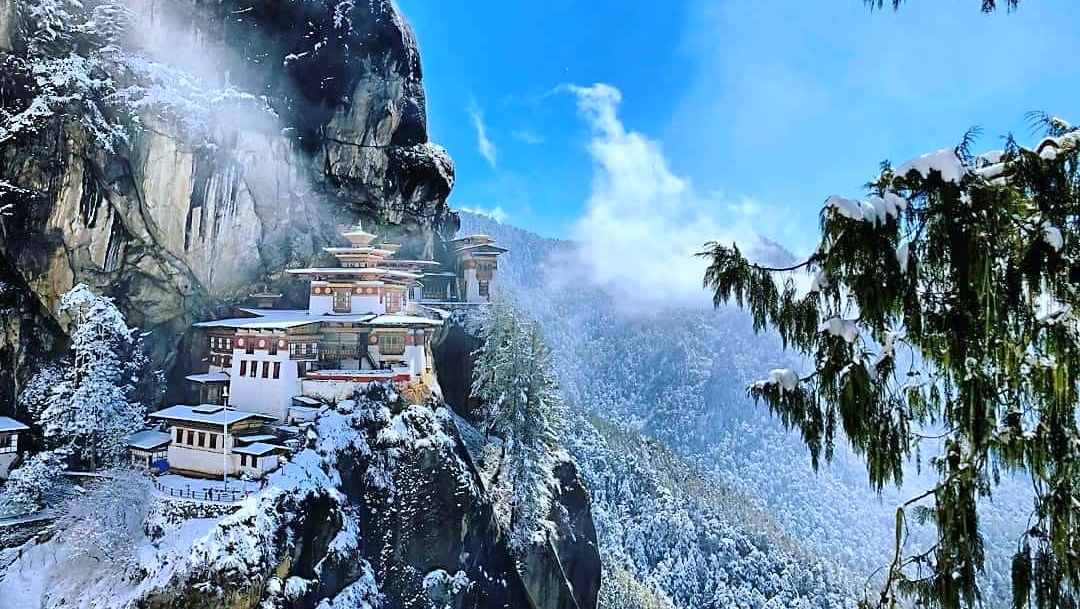
- March to May): Spring is one of the best times to visit Bhutan. The weather is mild and pleasant, with blooming flowers adding vibrant colors to the landscapes. The valleys are alive with rhododendrons, magnolias, and cherry blossoms, creating picturesque scenes. Spring is Ideal for trekking and exploring cultural sites without extreme temperatures.
- Summer (June to August): Summer in Bhutan is the monsoon season, characterized by occasional heavy rainfall. While the landscapes are lush and green, trekking trails can be muddy and slippery. The monsoon season may impact road conditions, potentially leading to travel disruptions.
- Autumn (September to November): Considered another optimal time to visit, autumn in Bhutan offers clear skies and pleasant temperatures. The landscapes are adorned with golden hues as the fall foliage takes center stage. Festivals, including the famous Thimphu Tshechu, often take place during this season.
- Winter (December to February): Winter is the dry season in Bhutan, with clear skies and crisp temperatures. While daytime temperatures are generally mild, evenings can be cold, especially at higher elevations. Winter is an excellent time for birdwatching, and the snow-capped mountains provide a stunning backdrop.
- Festivals and Events: Bhutanese festivals, known as "tsechus," are cultural celebrations deeply rooted in religious traditions. Festivals are held throughout the year, with some major ones occurring in spring and autumn. Attending a tsechu offers a unique cultural experience, with colorful masked dances and religious rituals.
- Trekking Considerations: Bhutan offers various trekking opportunities, and the choice of when to visit depends on your trekking preferences. Spring and autumn are popular for trekking due to favorable weather conditions and clear mountain views. Winter trekking is possible but requires adequate preparation for colder temperatures at higher altitudes.
- Crowds and Accommodation: Peak tourist seasons are spring and autumn, leading to higher demand for accommodations and potential crowds at popular sites. Winter and summer are generally considered off-peak seasons, offering more tranquility and potentially better rates for accommodations.
In conclusion, the best time to visit Bhutan depends on your preferences and the experiences you seek. Whether you are drawn to the vibrant colors of spring, the clear skies of autumn, or the tranquility of winter, Bhutan offers a unique and enriching journey for solo travelers throughout the year.
Must-Visit Destinations
Embarking on a solo trip to Bhutan offers a plethora of opportunities to explore the rich cultural heritage, scenic landscapes, and spiritual essence of this enchanting kingdom. Here's a guide to some must-visit destinations that promise a diverse and immersive experience during your solo adventure:
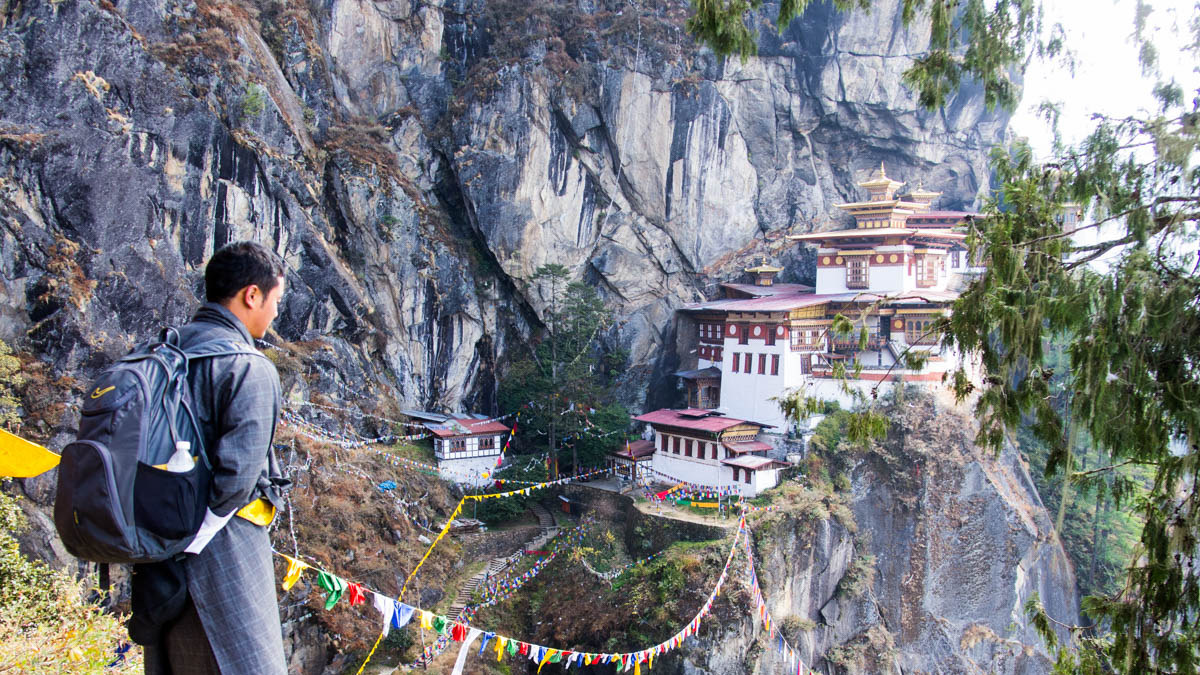
- Thimphu: As the capital city of Bhutan, Thimphu is a vibrant blend of tradition and modernity. Explore the iconic Memorial Chorten, a stupa dedicated to the third king of Bhutan. Visit Tashichho Dzong, an impressive fortress and government seat, and take a stroll through the colorful markets to experience local life.
- Paro: Paro is home to the iconic Tiger's Nest Monastery (Taktsang), perched on a cliffside. This sacred site offers breathtaking views and a spiritual trekking experience. Explore the historical Paro Rinpung Dzong, housing both monastic and administrative offices, and visit the National Museum to delve into Bhutanese art and culture.
- Punakha: Punakha Valley, with its subtropical climate, is known for the stunning Punakha Dzong, situated at the confluence of the Pho Chhu and Mo Chhu rivers. Take a leisurely hike to Chimi Lhakhang, a fertility temple, and explore the picturesque countryside.
- Bumthang Valley: Bumthang is considered the cultural heartland of Bhutan, offering a serene and spiritual ambiance. Visit the Jakar Dzong, Jambay Lhakhang, and Kurjey Lhakhang, ancient monasteries that reflect the rich history and religious significance of the region.
- Haa Valley: Haa Valley, nestled amidst pristine landscapes, provides a tranquil retreat. The valley opens to tourists only recently, offering an off-the-beaten-path experience. Explore the Lhakhang Karpo (White Temple) and Lhakhang Nagpo (Black Temple) along with scenic hikes.
- Phobjikha Valley: Phobjikha Valley, known for its natural beauty, is a glacial valley and the winter habitat of the endangered black-necked cranes. Visit Gangtey Monastery, perched on a hilltop, and enjoy the serenity of the surrounding landscapes.
- Trongsa: Trongsa, with its commanding dzong, holds historical significance as the ancestral home of the royal family. Explore Trongsa Dzong, a masterpiece of Bhutanese architecture, and the Ta Dzong museum, providing insights into Bhutanese history.
- Chele La Pass: For panoramic views of the Himalayas, embark on a journey to Chele La Pass, the highest road pass in Bhutan. The pass offers breathtaking vistas, and you can engage in short hikes to explore the surrounding natural beauty.
- Dochula Pass: Located on the road from Thimphu to Punakha, Dochula Pass is renowned for its collection of 108 stupas and panoramic views of the Himalayas on clear days. The pass is a perfect spot for a refreshing break and photo opportunities.
- Rural Villages: Take the opportunity to visit remote villages, such as Laya and Merak, to experience traditional Bhutanese life and interact with the friendly locals. Homestay experiences in these villages provide a genuine cultural immersion.
Whether you are exploring the bustling streets of Thimphu, trekking to sacred monasteries, or discovering hidden valleys, each destination in Bhutan offers a unique piece of the kingdom's cultural and natural tapestry. As a solo traveler, these must-visit destinations will enrich your journey, allowing you to absorb the beauty and spirituality that define the Land of the Thunder Dragon.
Solo Trekking
Bhutan, with its pristine landscapes and mountainous terrain, offers captivating trekking experiences for adventurers seeking solitude and a closer connection with nature. While Bhutan promotes a high-value, low-impact tourism model, solo trekking is allowed under certain conditions. Here's a comprehensive guide to solo trekking in Bhutan to help you plan an exhilarating journey:
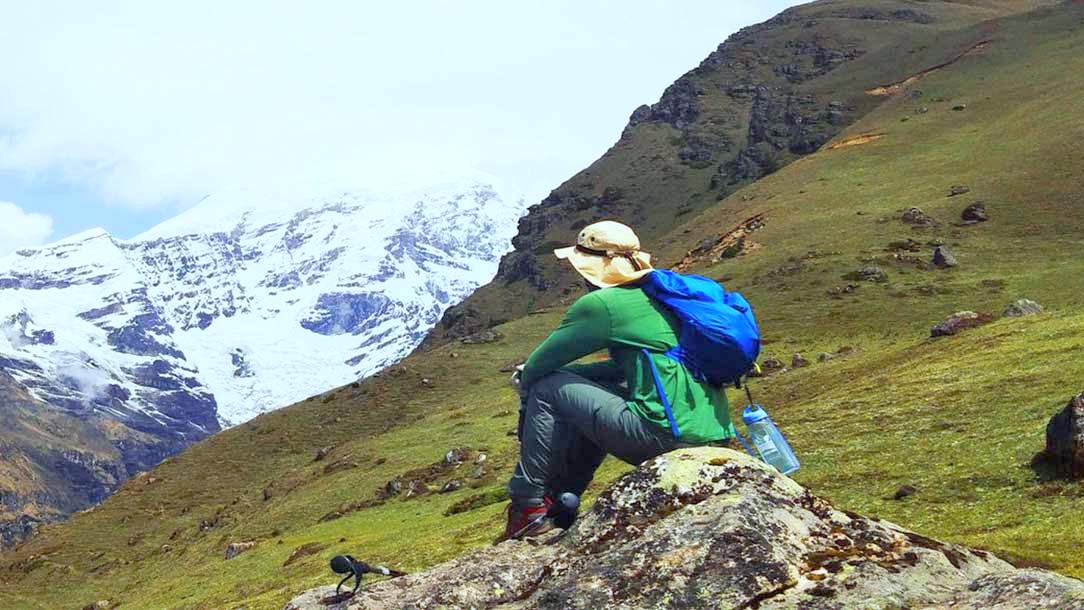
- Trekking Permits: Bhutan has a controlled tourism policy, and trekking permits are required for both group and solo trekkers. Obtain the necessary permits through your licensed Bhutanese tour operator well in advance of your planned trek.
- Popular Solo Trekking Routes: Solo travelers can explore Bhutan's diverse beauty through the Bumthang Cultural Trek's rich heritage, the Laya Gasa Trek's remote Himalayan vistas, and the Dagala Thousand Lakes Trek's serene high-altitude lakes, each offering a unique blend of cultural immersion and natural wonders.
- Guide and Support Staff: While solo trekking is allowed, Bhutanese regulations require all trekkers, including those traveling alone, to be accompanied by a licensed Bhutanese trekking guide. In addition to a guide, there will be a support staff including cooks, horsemen, and pack animals to ensure a comfortable and safe trekking experience.
- Camping and Accommodation: Bhutanese treks typically involve camping at designated campsites along the route. Tents, meals, and other camping equipment will be provided by the trekking agency, allowing you to focus on the trekking experience.
- Altitude Considerations: Many Bhutanese treks involve high-altitude passes, and acclimatization is crucial for your safety. Plan your itinerary with gradual ascents and acclimatization days to minimize the risk of altitude-related issues.
- Packing Essentials: Pack according to the season and altitude of your chosen trek. Essential items include sturdy trekking boots, warm clothing, a good-quality sleeping bag, a waterproof jacket, and personal trekking gear. It's advisable to carry some snacks, a water bottle, and a first aid kit.
- Weather Considerations: Bhutan's weather can be unpredictable, and conditions can change rapidly in the mountains. Be prepared for rain, snow, and cold temperatures, especially at higher altitudes.
- Responsible Trekking: Follow Leave No Trace principles to minimize your impact on the environment. Respect local customs and traditions, especially when passing through villages and sacred sites.
- Booking and Permits: Coordinate your trek through a licensed Bhutanese tour operator. They will assist you in obtaining the necessary permits and organizing logistics. Book well in advance, especially for popular trekking routes and during peak trekking seasons.
- Emergency Preparedness: Be aware of emergency evacuation procedures in case of unforeseen circumstances. Carry a communication device, such as a satellite phone, in areas with limited connectivity.
Solo trekking in Bhutan offers a unique opportunity to connect with the unspoiled beauty of the Himalayas and immerse yourself in the kingdom's natural and cultural treasures. With proper planning, respect for the environment, and adherence to safety guidelines, your solo trekking adventure in Bhutan is sure to be a transformative and unforgettable experience.
Accommodation
Planning accommodation for your solo trip to Bhutan involves choosing comfortable and culturally immersive places to stay. The kingdom offers a variety of options, from luxury resorts to cozy guesthouses, each contributing to the unique charm of your journey. Here's a guide to help you navigate accommodation choices during your solo Bhutan trip:
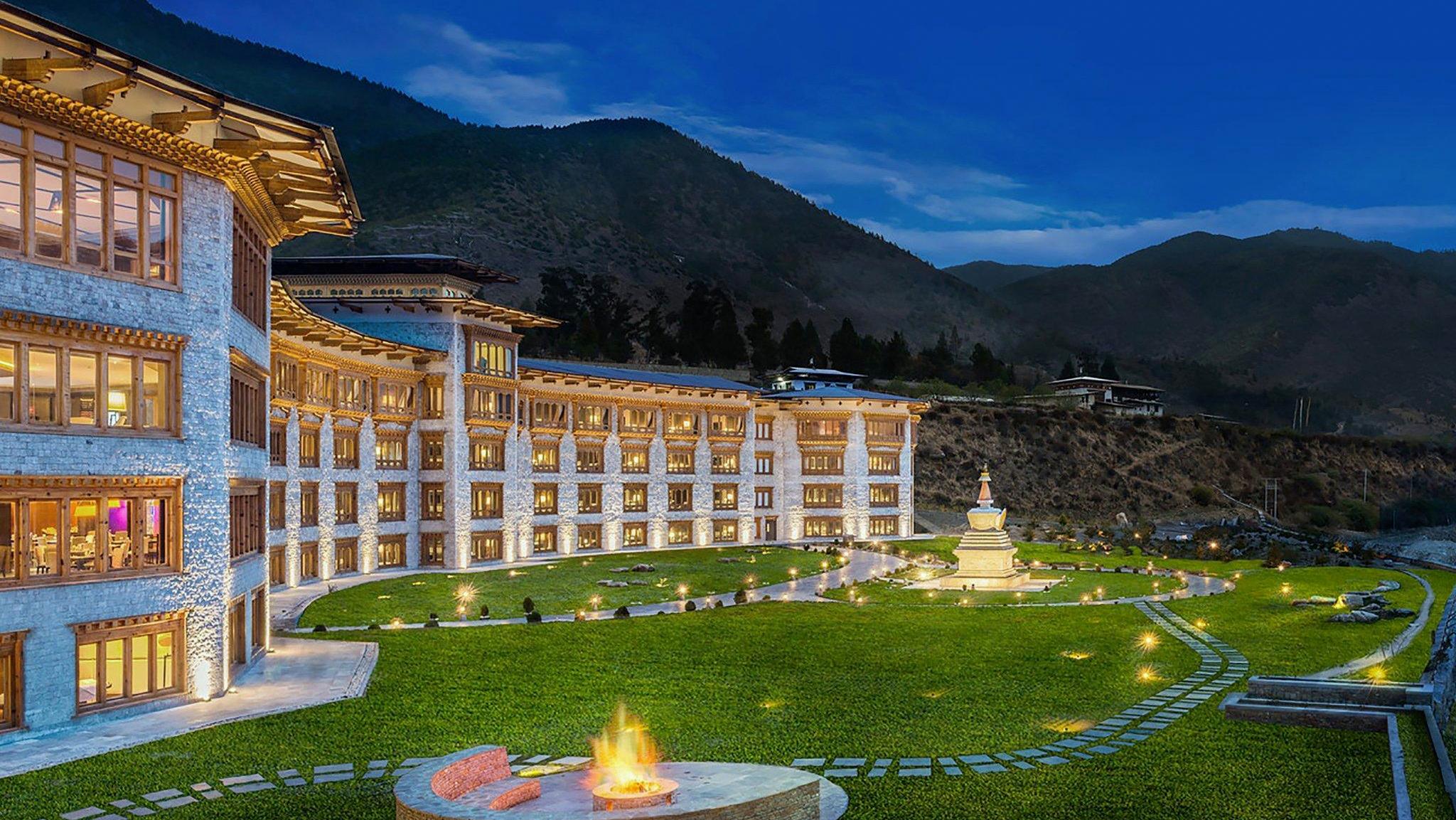
- Licensed Bhutanese Tour Operator: As part of Bhutan's tourism policy, all travelers, including solo travelers, must book their trips through licensed Bhutanese tour operators. Your tour operator will arrange accommodations as part of your overall travel package, ensuring compliance with government regulations.
- Accommodation Options:
- Luxury Resorts: Bhutan boasts several luxury resorts that offer a blend of modern amenities and traditional Bhutanese architecture. These resorts often provide stunning views of the surrounding landscapes and prioritize guest comfort.
- 3-Star and 4-Star Hotels: Bhutan has a range of comfortable hotels, both in major cities and in more remote areas These hotels provide a good balance between comfort and cultural authenticity.
- Guesthouses: Guesthouses are prevalent in many regions, providing a more intimate and authentic experience. They often have fewer rooms, allowing for a closer interaction with the hosts and fellow travelers.
- Farmstays: In rural areas, especially in valleys and villages, you may find farmstay accommodations. Staying in a farmstay provides an opportunity to experience local life and traditions firsthand.
- Homestays: For a more immersive cultural experience, consider staying in a homestays allow you to live with a Bhutanese family, sharing meals and learning about daily life and customs.
- Booking in Advance: Bhutan's tourism is regulated, and accommodations can fill up quickly, especially during peak seasons. It is advisable to book your trip well in advance to secure your preferred choice of accommodation.
- Location Considerations: In cities like Thimphu and Paro, choose accommodations that offer convenient access to major attractions and cultural sites. In more rural areas or during trekking expeditions, consider accommodations that provide proximity to nature and offer breathtaking views.
- Cultural Authenticity: Bhutanese accommodations often reflect the country's unique architectural style and cultural aesthetics. Many hotels and guesthouses incorporate traditional Bhutanese design elements, providing an authentic cultural experience.
- Facilities and Amenities: Check the facilities and amenities offered by the accommodation, especially if you have specific preferences or requirements. Some accommodations may provide services such as spa treatments, guided tours, or traditional Bhutanese cuisine.
- Camping During Treks: If you plan to embark on a trek, camping will be part of the experience. Trekking packages typically include tents, sleeping bags, and necessary camping equipment for a comfortable outdoor stay.
- Respect Local Customs: Bhutanese culture places great emphasis on respect and humility. Ensure that your behavior aligns with local customs and traditions, especially when staying in more intimate settings like homestays.
By considering these factors and working closely with your licensed Bhutanese tour operator, you can tailor your accommodation choices to suit your preferences and enhance the overall experience of your solo trip to Bhutan. Whether you opt for the luxury of a resort or the cultural immersion of a homestay, each night's stay contributes to the richness of your Bhutanese adventure.
Transportation
Navigating the roads and landscapes of Bhutan during your solo trip requires careful consideration of transportation options. The kingdom's commitment to sustainable tourism and environmental conservation has shaped its approach to transportation. Here's a guide to help you plan your solo Bhutan trip, considering the various modes of transportation available:

